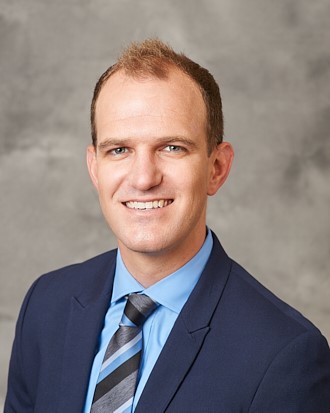Local doctor offers 5 tips for better care of chronic conditions
 Set clear goals, coordinate your care and track information for more effective primary care visits.
Set clear goals, coordinate your care and track information for more effective primary care visits.
1. Get informed
A physician is an expert in the world of medicine, but only you are an expert in yourself. Contribute to your care by providing relevant information.
“Some physicians hate when their patients Google symptoms, but I enjoy it—it shows you’re interested,” says Dr. Kyle Jordan, a family medicine physician at Pacific Medical Centers (PacMed) Totem Lake.
“It’s extremely rare for a patient to suggest something their doctor has never heard of, but it gives us a better idea of your concerns.”
Other important information? A list of your medications and their purpose, and medical records from other hospital visits. “The medical system is, unfortunately, very fragmented,” he adds. “Chronic patients often have acute events, and you can improve your care by coordinating information between physicians.”
2. Keep track of your body
“Objective evidence is important — tracking your blood-sugar levels if you’re diabetic, taking your blood pressure regularly, stepping on the scale if your doctor has asked you to monitor your weight,” Dr. Jordan says. “It doesn’t have to take over your life, but it’s important to track those things regularly to get a better picture of your health.”
Lab work also fits here. If your doctor orders a lab, support your care by getting it done.
3. Control what you can
Your chronic condition may give you bad days, but it doesn’t have to dominate your life. Start with small steps like getting physically active and eating well, and build your treatment from there. “In many cases, you can have more control over your body than your doctor does,” says Dr. Jordan.
Some chronic conditions, like depression, make it hard to do even the little things. Dr. Jordan acknowledges that patients commonly have a feeling of personal failure when success seems far off.
“All the grades and tests in medical school tend to make doctors goal-oriented, but health is more of a spectrum,” he explains. “Of course, I want you to quit smoking, reach a healthy weight or lower your blood pressure, but we can celebrate small victories along the way.”
4. Get support
“Humans are communal creatures. It’s not a deficiency to ask for help,” Dr. Jordan says. He encourages you to reach out to neighbors and friends, and to talk to your doctor—even about symptoms you find embarrassing.
“We can’t help you if we don’t know about it. If your chronic illness is giving you a hard time, get the support to cover your deficit. Maybe a friend can deliver your medication to your door, or maybe your doctor can help you access home health support.”
5. Plan ahead
Don’t procrastinate: book appointments and follow-ups early, and then cancel if symptoms clear up. Plan your doctor’s visit too. Set a clear goal for the appointment, and bring all that information you’ve been tracking!
“I don’t come from a family of doctors, and I still remember what it’s like to be a patient. It can be intimidating, but it’s important to remember that you’re the master of your own care. If you prepare, you’ll get more out of the professionals at your service,” Dr. Jordan says. “Doctors want to help!”
Dr. Jordan is accepting new patients at Pacific Medical Centers (PacMed) Totem Lake, 12910 Totem Lake Blvd. NE in Kirkland. To make an appointment call 425-814-5000 or book online at pacmed.org.



